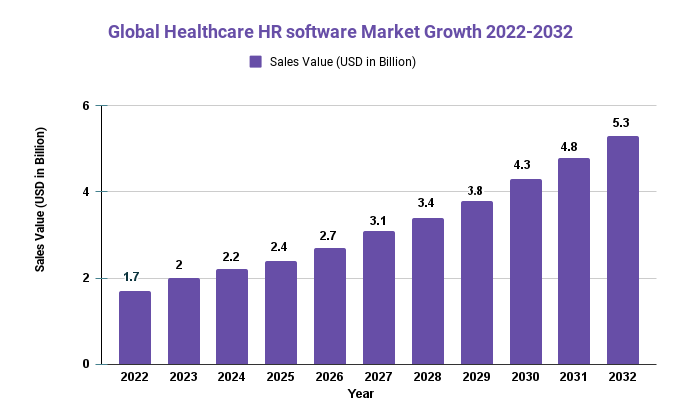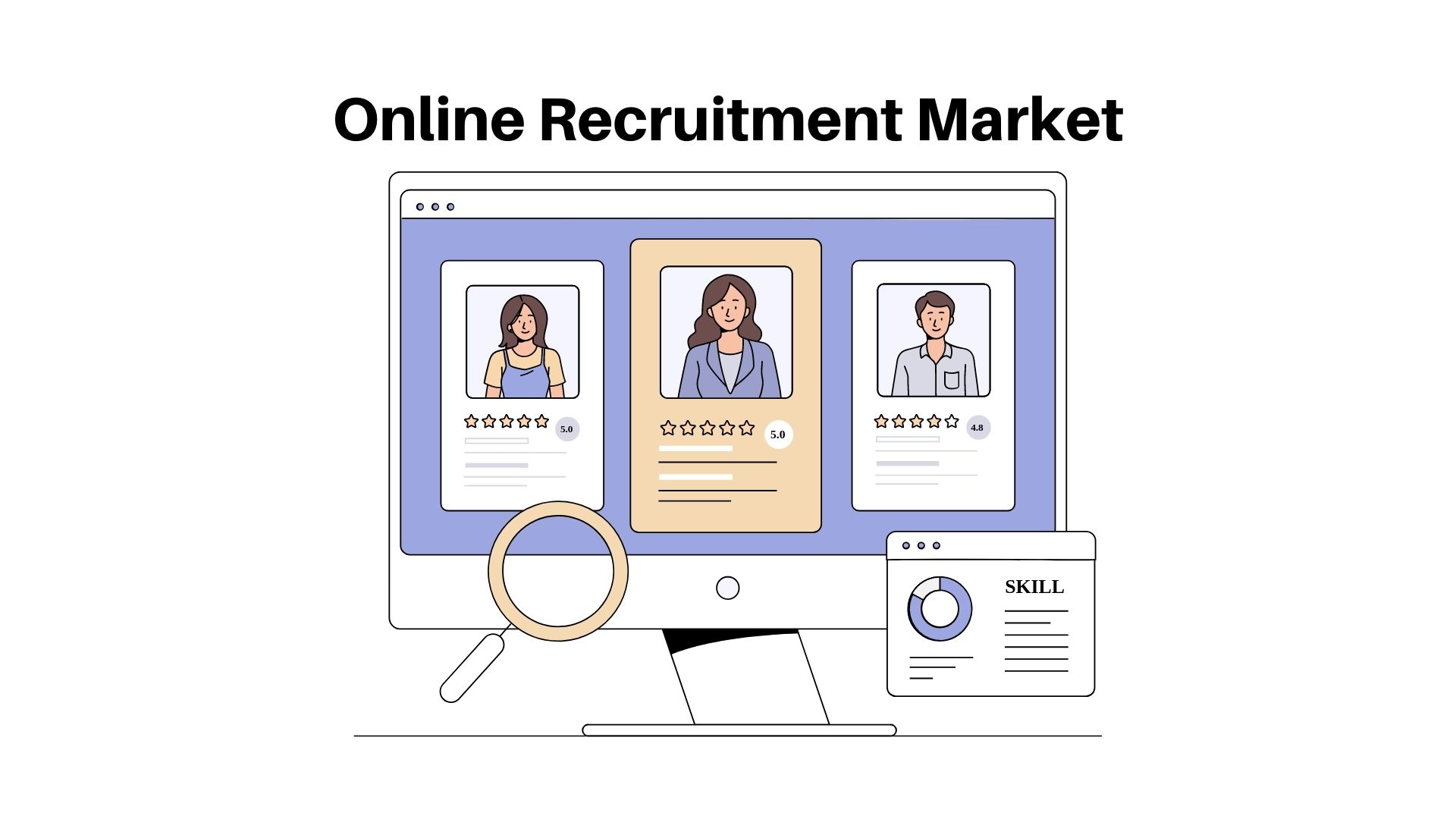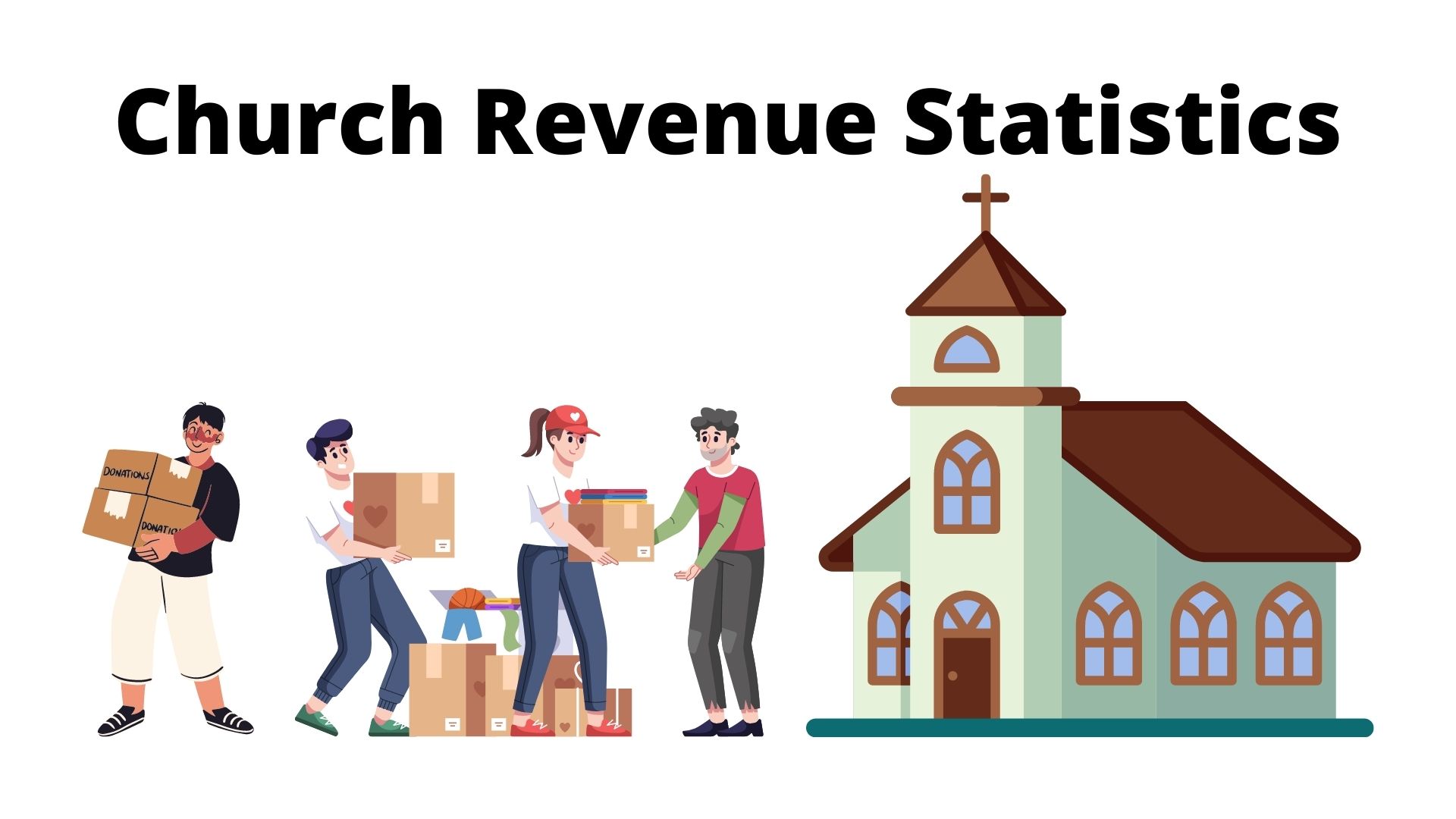Healthcare HR software Market Size will Observe Substantial Growth by 2032 with a CAGR of 11.8%
Page Contents
Market Overview
Published Via 11Press: The healthcare HR software market was experiencing rapid growth and was expected to keep this momentum in the foreseeable future. The COVID-19 pandemic has driven demand for healthcare services and highlighted the need for more efficient HR processes within the industry, leading to an uptick in the adoption of HR software solutions in healthcare organizations to streamline hiring, onboarding, scheduling, and other HR tasks.
In 2022, the global healthcare HR software market was valued at USD 1.4 billion and projected to reach USD 5.3 billion by 2032, growing at a compound annual growth rate (CAGR) of 11.8% during that timeframe. This growth can be attributed to factors such as increased automation in HR processes to reduce administrative workload, growing adoption of cloud-based HR solutions, and growing need for workforce management tools within this sector.
Overall, the healthcare HR software market is forecasted to continue its upward trajectory as healthcare organizations strive to enhance efficiency, reduce expenses and optimize their HR processes in line with industry demands.

Drivers, trends, and challenges have an impact on market dynamics, which can impact businesses. Request for PDF sample report
Key Takeaways
- The healthcare HR software market is witnessing remarkable growth, driven by the need for more efficient HR processes within the sector.
- Factors such as the COVID-19 pandemic, the increasing adoption of cloud-based HR solutions, and an uptick in workforce management tools within healthcare are driving the market growth.
- In 2022, the global healthcare HR software market was valued at USD 1.4 billion and is expected to reach a value of USD 5.3 billion by 2032, expanding at a compound annual growth rate (CAGR) of 11.8% during the forecast period.
- North America is currently the leading market for healthcare HR software, followed by Europe and Asia Pacific. These regions are expected to witness continued growth within these sectors as well as other emerging ones.
Regional Snapshot
- North America: North America is currently the leading market for healthcare HR software, due to the abundance of healthcare organizations and the high adoption of HR software solutions in the region. The United States leads this region with the majority of the market share.
- Europe: Europe is a major market for healthcare HR software, driven by the increasing adoption of digital technologies in healthcare and the need for more efficient HR processes. The United Kingdom, Germany, and France are the three largest markets within this region.
- Asia Pacific: The Asia Pacific region is projected to experience significant growth in the healthcare HR software market, due to factors such as increasing adoption of digital technologies in healthcare, rising demand for workforce management tools, and an increasing focus on improving patient outcomes. China and India are two of the largest markets within this region.
- Rest of the World: Regions such as Latin America and the Middle East/Africa are expected to experience growth in the healthcare HR software market due to factors such as increasing demand for healthcare services and a need for more efficient HR processes within the industry.
Drivers
- Need for Efficient HR Processes: Healthcare organizations require effective HR management of a large and diverse workforce, which can be time-consuming and laborious. HR software solutions streamline HR operations such as recruitment, onboarding, scheduling, and performance management to make them more efficient while decreasing administrative work.
- Cloud-Based HR Solutions Gain Ground: Cloud-based HR solutions offer several advantages over on-premise alternatives, such as greater scalability, lower upfront costs, and enhanced security. To this end, healthcare organizations are increasingly turning towards cloud-based HR systems for managing their workforces.
- Growing Demand for Workforce Management Tools: Healthcare organizations are under increasing pressure to optimize their workforces, cut costs, and enhance patient outcomes. Utilizing workforce management software such as scheduling or time and attendance software can assist healthcare organizations in reaching these objectives.
- Focus on Employee Engagement and Retention: Healthcare organizations are realizing the significance of employee engagement and retention for improving patient outcomes and cutting costs. HR software solutions that offer features such as performance management and employee engagement surveys can help organizations boost employee satisfaction levels and reduce turnover rates.
Restraints
- High Costs: Implementing and maintaining HR software solutions can be expensive, particularly for small to medium-sized healthcare organizations. In some cases, these costs could act as a deterrent to entry for some healthcare organizations, limiting their adoption of HR software solutions.
- Lack of IT Expertise: Adopting and maintaining HR software solutions necessitates a certain level of IT proficiency. Healthcare organizations lacking these necessary skills and resources may find it challenging to adopt these solutions.
- Concerns Regarding Data Security: Healthcare organizations handle sensitive patient information, leading to worries about the security of HR software solutions. Any data breaches could result in substantial financial and reputational harm for these institutions.
- Resistant to Change: Healthcare organizations may be resistant to innovation and would rather continue with traditional methods for managing their workforce. It may take a considerable amount of time and energy to convince these organizations that HR software solutions are necessary for success.
- Limited Customization Options: HR software solutions may not always accommodate the particular requirements of healthcare organizations, necessitating extensive customization that may prove challenging and expensive to complete.
Opportunities
- Growing Demand for Digital Technologies: The healthcare industry is rapidly adopting digital technologies to enhance patient outcomes, cut costs, and streamline processes. This adoption presents HR software solutions that can help healthcare organizations manage their workforce more efficiently.
- Focusing on Employee Engagement and Retention: Healthcare organizations are realizing the significance of employee engagement and retention when it comes to improving patient outcomes and cutting costs. HR software solutions with features such as performance management and employee engagement surveys can help organizations boost employee satisfaction levels and reduce turnover rates.
- Emerging Markets: Emerging markets such as Asia Pacific and Latin America are experiencing tremendous growth in the healthcare industry. As these regions expand, demand for HR software solutions to manage workforces is expected to surge.
- Utilization of Artificial Intelligence and Machine Learning: HR software solutions that incorporate artificial intelligence (AI) and machine learning (ML) capabilities, such as predictive analytics and chatbots, can enhance HR processes and reduce administrative work. With AI/ML being increasingly utilized in healthcare industries, there will be new opportunities for HR software providers.
Challenges
- Fragmented Market: The healthcare HR software market is highly fragmented, with a variety of vendors offering solutions that differ in features and functionality. This fragmentation makes it challenging for healthcare organizations to select the correct solution and vendors to stand out in an overcrowded space.
- Slow Adoption: Despite the numerous advantages offered by HR software solutions, some healthcare organizations may be slow to adopt them due to a lack of awareness or comprehension of their potential advantages.
- Interoperability Issues: Healthcare organizations often utilize multiple software solutions for different tasks, which may lead to interoperability problems. HR software packages that do not integrate well with other solutions may prove less attractive to healthcare organizations.
- Data Security Concerns: Healthcare organizations handle sensitive patient information, raising serious security questions about HR software solutions. Any breaches in data security could have devastating financial and reputational repercussions for these institutions.
- Regulatory Compliance: Healthcare organizations must abide by stringent regulatory compliance requirements, and HR software solutions must adhere to these rules. Securing this compliance can take time and be expensive.
Recent Developments
- On February 2022, Kronos Incorporated – a leader in workforce management solutions – unveiled Workforce Dimensions for Healthcare, an array of AI-powered solutions tailored specifically to the healthcare sector.
- On January 2022, ADP, a global provider of HR software solutions, announced the acquisition of AMS, an expert provider of HR technology solutions for healthcare organizations.
- On December 2021, UKG, a provider of HR and workforce management solutions, unveiled UKG Pro for Healthcare–a suite of solutions tailored specifically for the healthcare industry.
- On November 2021, Paylocity, a provider of cloud-based HR and payroll software solutions, unveiled Paylocity Healthcare: an exclusive suite of solutions tailored for the healthcare industry.
- On October 2021, Oracle Corporation, a leading global provider of enterprise software solutions, unveiled Oracle Health Sciences Workforce Health and Safety: an array of solutions designed to assist healthcare organizations to manage their workforces during the COVID-19 pandemic.
Key Market Segments
Type
- On-Premise
- Web Based
Application
- Pharmaceutical Industries
- Hospital
Key Market Players
- Paychex
- Paycom
- SumTotal Systems
- SAP
- Ceridian HCM
- PeopleAdmin
- CoreHR
- Kenexa Corporation
- Oracle
- Ultimate Software
Report Scope
| Report Attribute | Details |
| The market size value in 2022 | USD 1.7 Bn |
| Revenue forecast by 2032 | USD 5.3 Bn |
| Growth Rate | CAGR Of 11.8% |
| Regions Covered | North America, Europe, Asia Pacific, Latin America, and Middle East & Africa, and Rest of the World |
| Historical Years | 2017-2022 |
| Base Year | 2022 |
| Estimated Year | 2023 |
| Short-Term Projection Year | 2028 |
| Long-Term Projected Year | 2032 |
Frequently Asked Question
Q: What is healthcare HR software?
A: Healthcare HR software is a type of software designed specifically for the healthcare industry that helps healthcare organizations manage their workforce more efficiently. It can include features such as employee scheduling, time and attendance tracking, performance management, and benefits administration.
Q: What are the benefits of healthcare HR software?
A: Healthcare HR software can help healthcare organizations improve workforce management, reduce administrative workload, increase employee engagement and retention, and ensure regulatory compliance.
Q: What are some of the key features of healthcare HR software?
A: Some of the key features of healthcare HR software include employee scheduling, time and attendance tracking, performance management, benefits administration, compliance tracking, and reporting and analytics.
Q: What are some of the challenges of implementing healthcare HR software?
A: Some of the challenges of implementing healthcare HR software include high costs, concerns about data security, resistance to change, and limited customization.
Q: How is AI being used in healthcare HR software?
A: AI is being used in healthcare HR software to improve HR processes, reduce administrative workload, and provide predictive analytics. AI-powered solutions can also help healthcare organizations manage their workforce more efficiently and improve patient outcomes.
The team behind market.us, marketresearch.biz, market.biz and more. Our purpose is to keep our customers ahead of the game with regard to the markets. They may fluctuate up or down, but we will help you to stay ahead of the curve in these market fluctuations. Our consistent growth and ability to deliver in-depth analyses and market insight has engaged genuine market players. They have faith in us to offer the data and information they require to make balanced and decisive marketing decisions.



